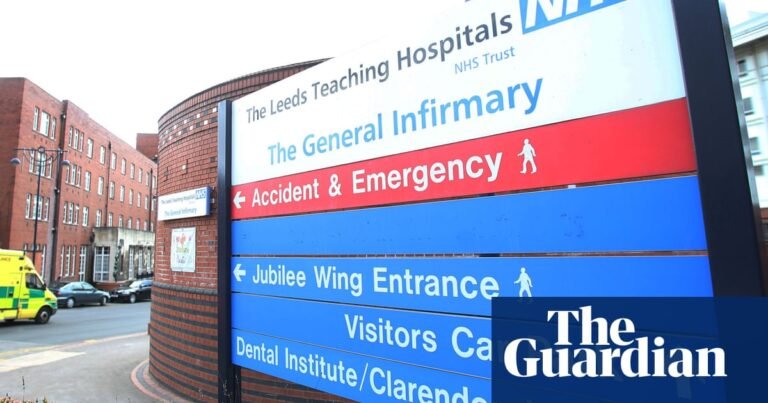The care of women and babies at two Leeds hospitals presents a significant risk to their safety, the NHS regulator has said, after the preventable deaths of dozens of newborns.
The Care Quality Commission (CQC) demanded urgent improvements to maternity services at Leeds general infirmary and St James’s hospital as it downgraded them to “inadequate”.
A BBC investigation this year found that the deaths of at least 56 babies and two mothers may have been preventable at the two hospitals between January 2019 and July 2024.
The hospitals, run by Leeds teaching hospitals NHS trust, are the latest to be engulfed by a maternity scandal that has revealed catastrophic failings in Nottingham, Shrewsbury and Telford, Morecambe Bay, east Kent and others.
The downgrading of maternity and neonatal services in Leeds follows unannounced inspections by the CQC in December and January.
Ann Ford, a director of operations at the CQC, said it had received concerns from staff, patients and families about safety and staffing levels at the two hospitals.
She said: “During the inspection the concerns were substantiated, and this posed a significant risk to the safety of women, people using these services, and their babies as the staff shortages impacted on the timeliness of the care and support they received.”
Inspectors found dirty areas on the maternity wards of both hospitals, unsafe storage of medicines, a “blame culture” that left staff unwilling to raise concerns, and short-staffed units.
On the neonatal wards, which care for the most vulnerable newborns, the CQC found they were understaffed and infants needing special care were being transported unsafely from one hospital to another.
A freedom of information request by the BBC revealed in January that the NHS trust had identified at least 56 baby deaths that may have been preventable from January 2019 to July 2024, made up of 27 stillbirths and 29 neonatal deaths, which are deaths within 28 days after birth.
In each case, a trust review group had identified care issues it considered may have made a difference to the outcome for babies.
Sir Julian Hartley, the head of the CQC, was the chief executive of Leeds teaching hospitals NHS trust for 10 years until January 2023, meaning he was in charge when many of the preventable deaths took place.
The parents of a newborn girl who died after multiple failings at Leeds general infirmary in January 2020 questioned the CQC’s ability to carry out an independent inspection, given Hartley’s previous role. The regulator said it has “robust policies in place to manage any conflict of interest”.
Prof Phil Wood, the chief executive of Leeds teaching hospitals NHS trust, said: “These reports have highlighted significant areas where we need to improve our maternity and neonatal services, and my priority is to make sure we urgently take action to deliver these improvements.”
He said the trust was improving whistleblowing procedures for staff and had recruited 55 midwives, leaving it 11 short of the national target.
Wood added: “I want to reassure every family due to have their baby with us in Leeds and any new parents that we are absolutely committed to providing safe, compassionate care.”
